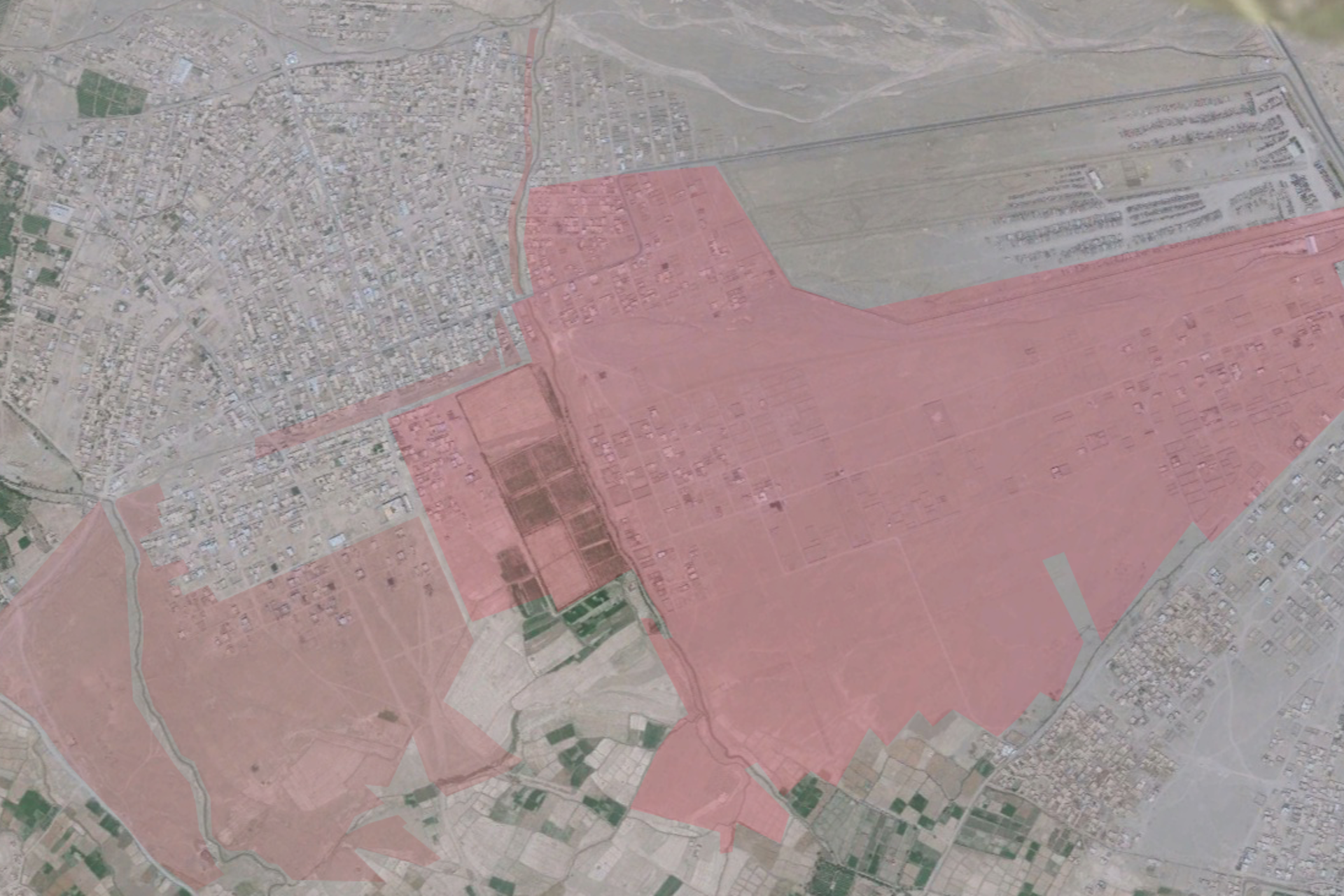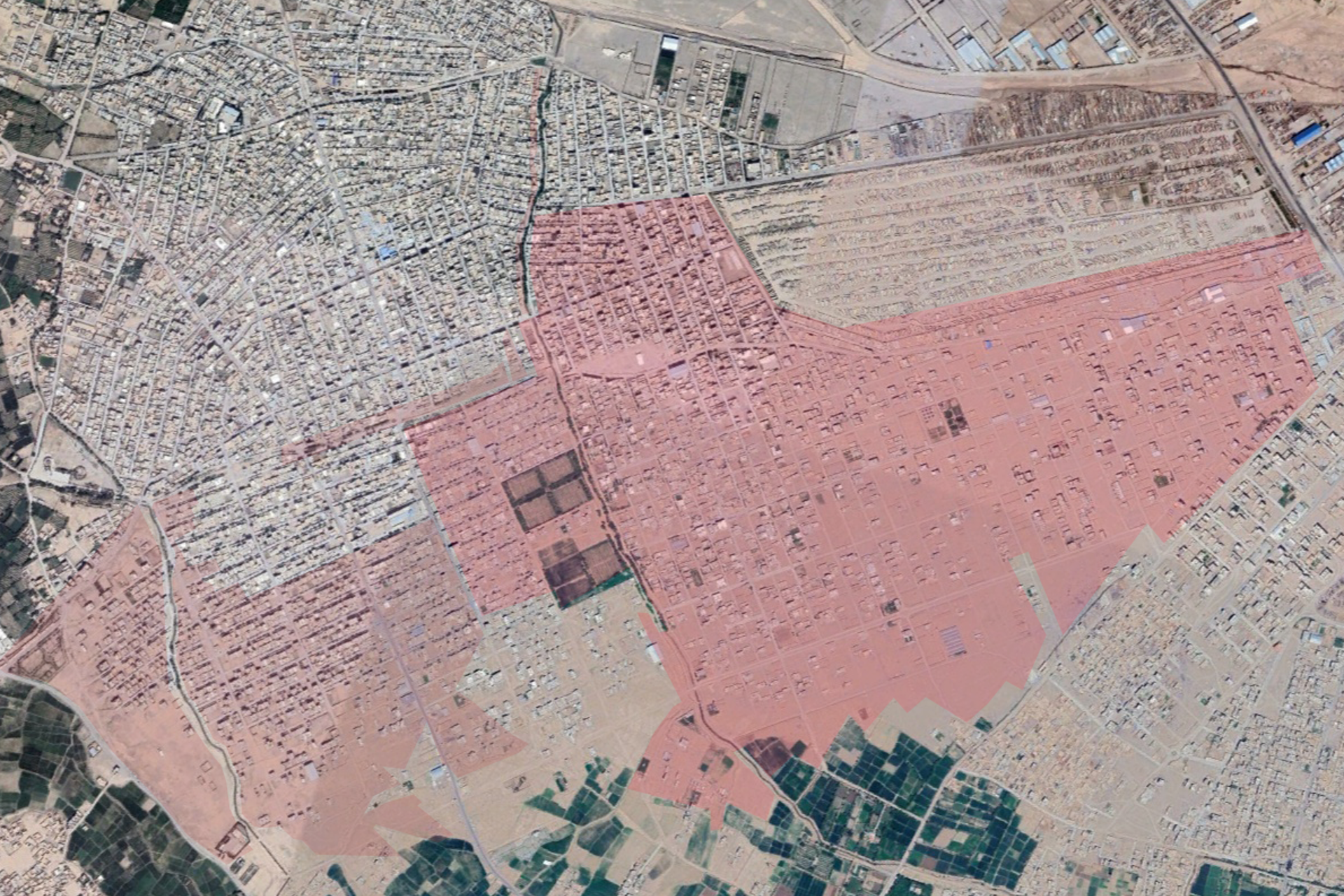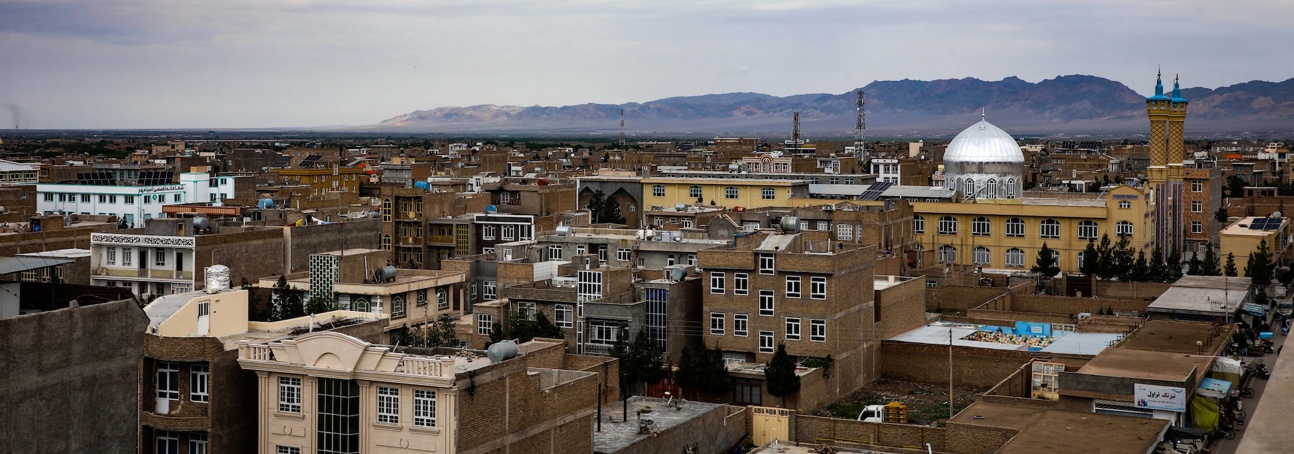Just northwest of the ancient Silk Road city of Herat, on the road to Iran and the saffron fields of Ghorian, lies the neat suburban town of Jebrail. It has tree-lined streets, play parks for children and thriving schools and businesses to serve the population of 80,000 people.
Largely unnoticed by the local people are the faded large ticks painted on many of the older walls in the town. Those ticks, left there by HALO deminers to indicate a cleared section of minefield, are the only remaining reminder that Jebrail was once dangerous and desolate, a sparsely-populated wasteland because it was mined repeatedly by Soviet and Mujaheddin forces during the fighting of the 1980s.
"Previously, this area was a desert," says Mohammed Mirzayee, head of the Jebrail council. "People lived in fear, children were unable to walk and play games in this area. The mines left us feeling in danger."
Faded ticks: the last signs of the minefield
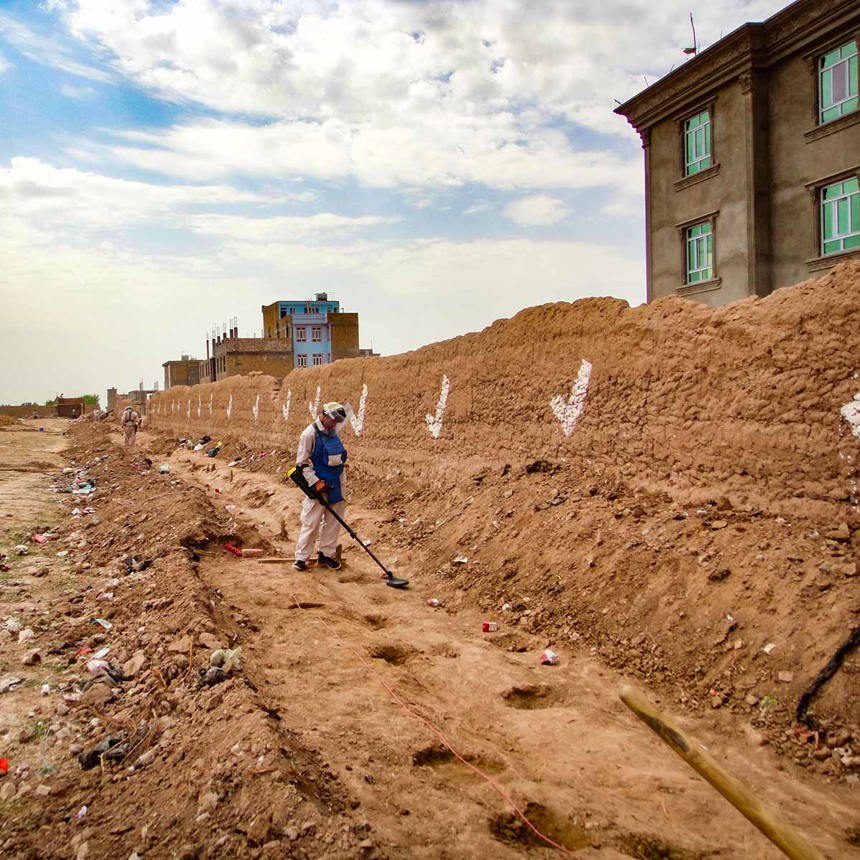
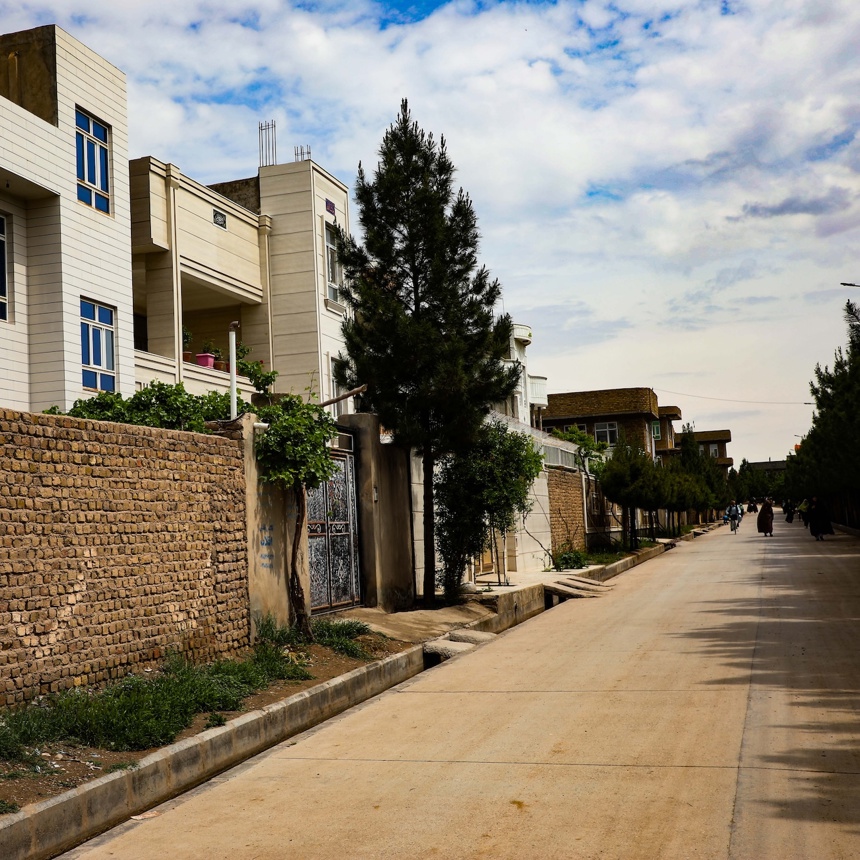
The UK Government funded a ten-year project for HALO to clear minefields across Herat Province and deminers worked in the Jebrail area from 2011 to 2014. In the first phase of the Herat project HALO cleared 55 square kilometres of minefield and battlefield – equivalent to almost 8,000 football pitches – across 14 of Herat’s 16 districts, benefitting 133,700 households. The clearance of Jebrail was the largest project in that programme.
"We are proud of these buildings, and we are proud to be the cause of the rebuilding of our city," says Habibullah Ahmadi, a HALO Task Group Supervisor, who worked in Jebrail's minefields. "When we arrived the only people here were a small number of residents who didn't know about the danger from the mines."
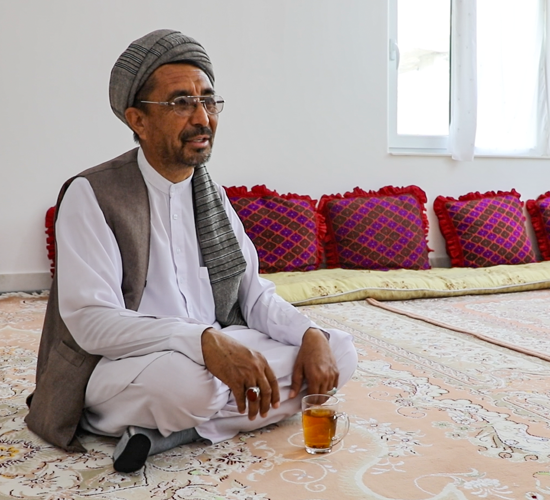
"After clearance, people were feeling safe, construction work started. Investment started. Most of the people came here for a better life. Schools, parks and clinics were established providing opportunities for people to live good lives here."
Councillor Mirzayee adds: "Many of the people living here have returned from Iran, Pakistan, and other countries. During the conflict, my family migrated to Pakistan and Iran for a period, eventually coming here from Ghazni province. Others have come from other provinces of Afghanistan. War and natural disasters have also driven some of them here. Most people have selected this area because of better life opportunities."
"Most of the residents of Jabrial are Hazara. Some Tajiks are also living here along with Pashtuns, but they are rare. Most of the people are Hazara."
The Hazara people are one of the many ethnic groups in Afghanistan, but have suffered discrimination and persecution, including being targeted by terrorist groups in recent years. By clearing the mines in Jebrail, HALO has made a safe place in Afghanistan for them to call home.
Jebrail 2009 compared with 2023 - with minefield in pink
